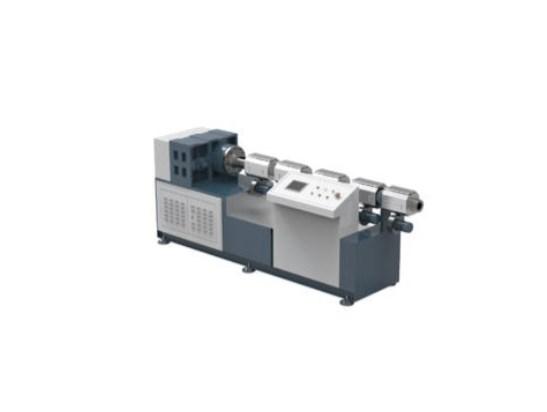Plastic extrusion is a cornerstone of the plastics industry, responsible for the production of a vast array of products from simple tubes to complex profiles. Central to this process is the plastic extrusion screw, a critical component that shapes and propels the molten polymer through the extruder. However, the environmental implications of plastic production have led to a growing demand for sustainable practices. This article explores how the design, operation, and maintenance of plastic extrusion screws can contribute to a more environmentally friendly production process.
The first step in protecting the environment with plastic extrusion screws is to consider their design. Modern screws are engineered to be more energy-efficient, reducing the amount of power required to melt and extrude the plastic. This not only lowers the carbon footprint of the production process but also reduces operational costs for manufacturers. Additionally, the use of high-quality materials in screw construction ensures a longer lifespan, minimizing waste and the need for frequent replacements.
Operational practices also play a significant role in the environmental impact of plastic extrusion screws. By optimizing the extrusion process, manufacturers can reduce the amount of material wasted during startup and shutdown phases. This can be achieved through precise temperature control, which ensures that the plastic is melted evenly and efficiently, reducing the risk of defects and the need for rework. Furthermore, the implementation of real-time monitoring systems allows for immediate adjustments to be made, minimizing energy consumption and material waste.
Another important aspect of environmental protection in plastic extrusion is the recycling and reuse of materials. Plastic extrusion screws can be designed to handle recycled plastics, which are often more challenging to process due to their variable composition. By adapting the screw geometry and processing conditions, manufacturers can effectively incorporate recycled materials into their products, reducing the demand for virgin plastics and contributing to a circular economy.
The maintenance of plastic extrusion screws is also crucial for environmental sustainability. Regular inspections and timely repairs can prevent leaks and other issues that may lead to contamination of the plastic being extruded. This not only ensures the quality of the final product but also prevents the release of harmful substances into the environment. Moreover, the use of non-toxic lubricants and cleaning agents in the maintenance process further reduces the environmental impact of the operation.
Innovative technologies are also being developed to enhance the sustainability of plastic extrusion screws. For example, the integration of sensors and artificial intelligence can optimize the extrusion process in real time, reducing energy consumption and material waste. Additionally, research into new materials and coatings for screws is ongoing, to improve their durability and resistance to wear, thereby reducing the environmental footprint of their production and disposal.
Education and training for operators are also essential in promoting environmentally friendly practices. By understanding the importance of sustainable production and the role that plastic extrusion screws play in this process, operators can make informed decisions that minimize the environmental impact of their work. This includes following best practices for energy conservation, material usage, and waste management.
In conclusion, the protection of the environment in the context of plastic extrusion screw usage is a multifaceted challenge that requires attention to design, operation, maintenance, and innovation. By adopting sustainable practices and leveraging technological advancements, the plastics industry can significantly reduce its environmental impact while still meeting the demands of modern society. The plastic extrusion screw, once a simple tool, has become a symbol of the industry's commitment to environmental stewardship and sustainable development.



